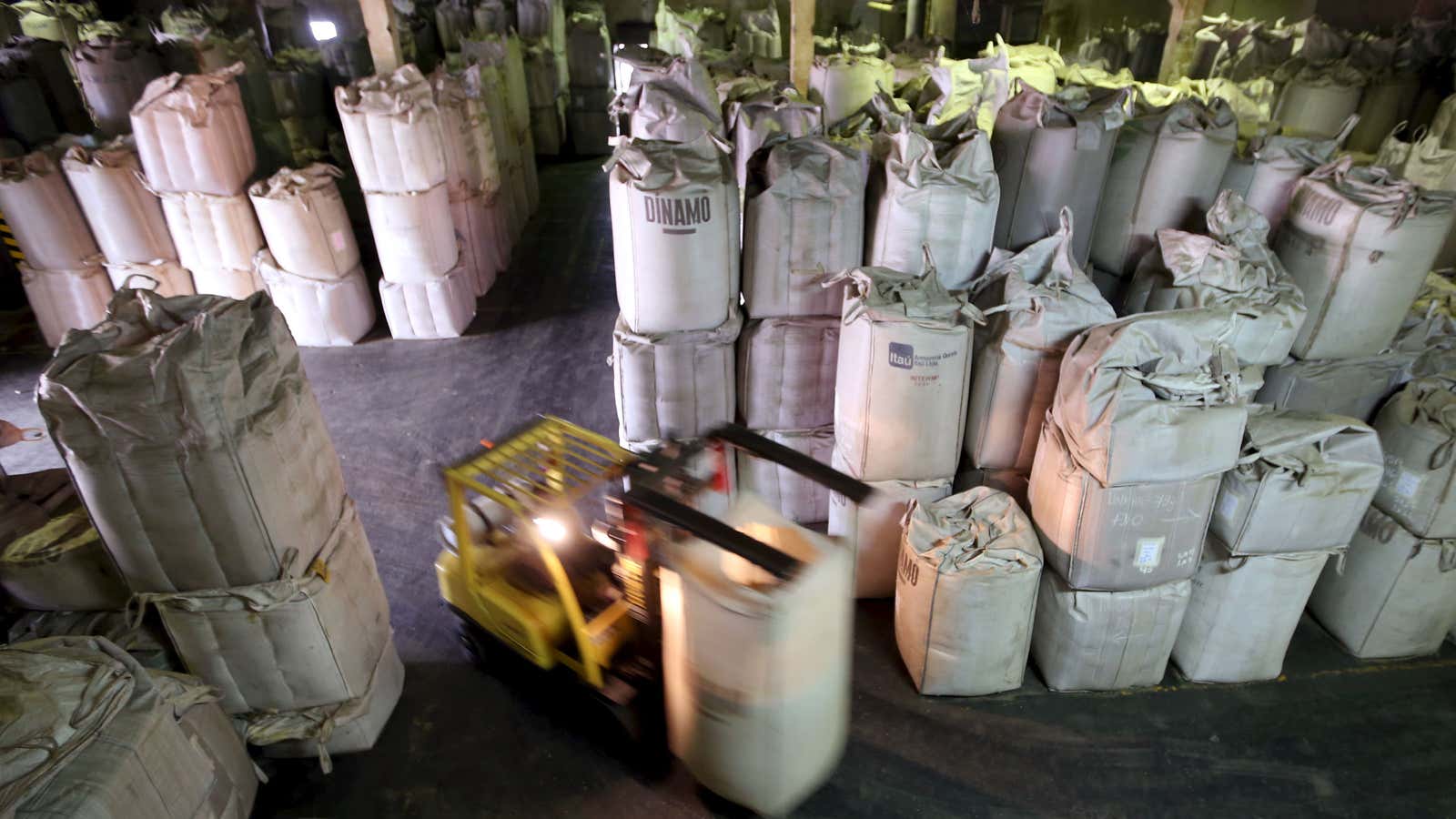To handle the supply chain issues in container shipping, companies are switching back to bulk vessels. That means demand for bulk bags is increasing. While many consumers are familiar with the bulk bags that dry goods like rice and coffee are often shipped in, there is another larger bag that shippers are using. It’s called a Super Sack and while a wholesale bag of rice may hold 50 lbs., a Super Sack can hold thousands.
The generic name for a Super Sack is Flexible Intermediate Bulk Container or FIBC. BAG Corp, an industrial bulk packaging company, coined “Super Sacks” in 1974 and the name stuck.
InterBULK, which supplies FIBCs across the US, has seen a 50% increase in sales for the sacks over the past 6 months, particularly for food and food-related products. BAG Corp has also seen an increase in demand for Super Sacks since the supply chain crisis began. The sacks are being used for both domestic trucking and international shipping.
With the bottlenecks at container ports, productivity and cost-effectiveness make Super Sacks attractive to companies who used to fill shipping containers with smaller sacks. “Generally when you eliminate smaller bags and go to Super Sacks, you can fill them faster and move them around more quickly,” said Mark Moellman, InterBULK’s chief. “It’s going to take much less time to fill 44 Super Sacks instead of 1,760 smaller bags.”
How many FIBCs and Super Sacks fit on trucks and ships
Coca-Cola recently switched to bulk carriers from containers in order to maintain operations. An executive said 60,000 tons of materials were moved in bulk bags instead of containers due to supply chain issues. It required about the same amount of trucks to transport once on land.
The cost of a bulk bag ranges from $6 for a basic sack to $20 for a sack with a liner and extra stitching. The sacks can also be bought at even larger sizes and hold up to 4,400 lbs. each. However, Super Sacks can’t be sent to locations without a forklift. “A 40 lb. bag someone can put it over their shoulder and move it around,” said Moellman. “No one’s going to pick up a 2,000 lb. bag.”
